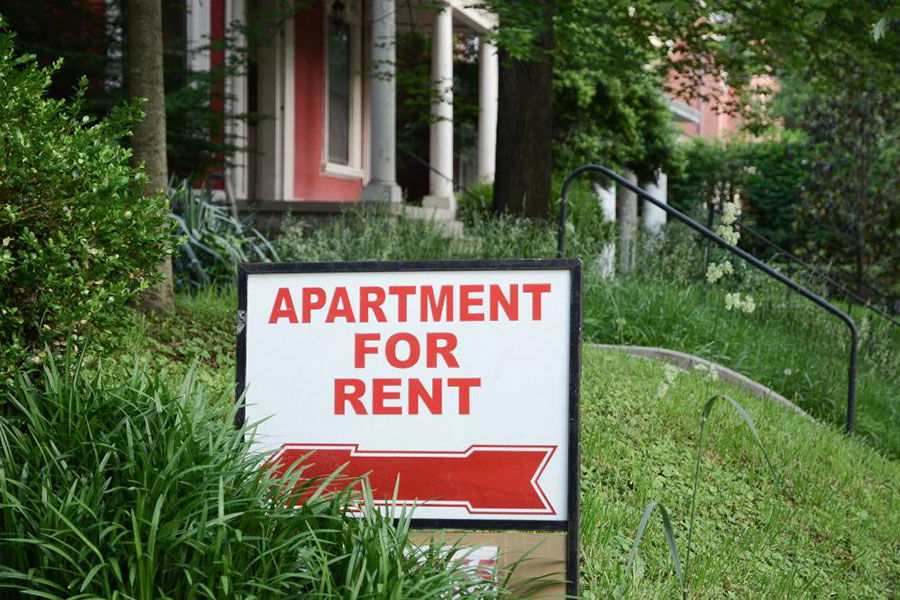Looking to live for free—or even turn a profit from your home? That’s the goal of house hacking: a real estate strategy where you live in one part of a property and rent out the rest to reduce or eliminate your housing costs.

It’s a simple idea with big potential. Whether you own a duplex, a home with a finished basement, or just an extra room or two, house hacking can help cover your mortgage and build long-term wealth. And for many homeowners, it becomes a stepping stone to real estate investing.
What is house hacking?
House hacking is when you buy a property to live in and rent out part of it to generate income. This could mean purchasing a multifamily home and renting out the other units, living in a house and renting out the spare bedrooms, or turning a basement or garage into a rental.
The rent you collect helps offset the mortgage, utilities, and other housing expenses—sometimes entirely. In the right market, it can even generate a profit each month. That’s why house hacking has become one of the most accessible ways to get started with real estate investing while improving your financial situation.
Why House Hacking Works
House hacking works because it flips your biggest expense—housing—into a potential income source. Instead of paying out of pocket for your mortgage, you let tenants help cover the cost. In many cases, the rent covers everything, allowing you to live for free or even turn a monthly profit.
It’s not just about short-term savings. House hacking helps you:
- Build equity faster without draining your paycheck.
- Learn how real estate investing works without buying a separate property.
- Access better financing terms, since you’re an owner-occupant.
- Qualify for valuable tax deductions on property-related expenses.
Real-Life Examples That Show the Math
Alex purchases a duplex for $400,000 with 5% down using an FHA loan. He lives in one unit and rents out the other for $1,800. His monthly mortgage is $2,200, which means he’s only paying $400 out of pocket while gaining experience as a landlord and building equity.
Jamie buys a four-bedroom home, lives in one room, and rents out the other three for $800 each. That’s $2,400 per month—enough to cover her $2,200 mortgage, utilities, and still pocket a little extra.
Instead of spending thousands on housing each month, house hackers can redirect that money into savings, investing, or paying down their mortgage faster. Here’s how to decide if paying off your mortgage early makes sense.
5 House Hacking Strategies to Consider
There’s no one-size-fits-all approach to house hacking. The right strategy depends on your location, budget, lifestyle, and willingness to share space.
Here are five ways to make house hacking work for you:
1. Rent Out Part of Your Home
Buy a house and rent out a separate area—like the basement, guest suite, or converted garage. You live in one part and rent out the other. This is common in lower-cost housing markets where the rent can cover most or all of the mortgage.
2. Rent Out Individual Rooms
Live in a single-family home and rent out spare bedrooms. This setup works well for younger buyers who are comfortable with shared living. It’s also one of the easiest ways to get started.
3. Live in One Unit of a Multifamily Property
Buy a duplex, triplex, or fourplex. You live in one unit and rent out the others. This is ideal for anyone who wants more privacy but still wants steady rental income. These properties also qualify for owner-occupied financing like FHA or VA loans.
4. Add or Use an Accessory Dwelling Unit (ADU)
If your property allows it, build or convert a space into an ADU—a basement apartment, guest house, or garage studio. This setup gives you maximum separation from tenants while generating consistent income.
5. Do a Live-In Flip
Buy a property that needs work, live in it while you renovate, and then sell it for a profit. You may still rent out a room or unit during the process to offset costs. If you live there for at least two years, you may qualify to exclude some or all of your capital gains from taxes when you sell.
Legal and Tax Rules You Need to Know Before House Hacking
Before renting out part of your home, it’s important to be aware of the legal and tax implications. Getting this right protects you from costly mistakes and helps you make the most of the financial benefits.
Zoning and Permits
- Check your local zoning laws to make sure renting out a unit or room is allowed.
- You may need a permit for short-term rentals or to convert a space into a legal rental unit.
Landlord-Tenant Laws
- Follow state and local laws for leases, deposits, habitability, and evictions.
- Even if your tenant is just renting a room, you’re still subject to most landlord requirements.
Rental Income Taxes
- Rental income is taxable. You’ll need to report it on your tax return.
- Keep clear records of rent payments, expenses, and repairs.
Tax Deductions
- If you’re renting part of your home, you may be able to deduct a portion of your mortgage interest, property taxes, maintenance costs, utilities, and depreciation.
- Deductions are based on the square footage or percentage of the home rented out.
Capital Gains Exclusion
- If you sell the home and lived in it for at least two of the past five years, you may qualify for the capital gains tax exclusion—up to $250,000 for individuals or $500,000 for married couples.
Talk to a Pro
- A real estate attorney and tax professional can help you set things up correctly and make sure you’re protected from the start.
House Hacking Checklist: What to Do Before You Start
Before you buy a property or take on tenants, cover these key steps to protect your finances, stay compliant, and set yourself up for success.
1. Check Your Financial Readiness
- Review your credit score and debt-to-income ratio
- Budget for your down payment, closing costs, basic renovations, and emergency repairs
2. Explore Owner-Occupied Financing Options
- Look into FHA, VA, or conventional loans with low down payments
- Get pre-approved so you know your purchase budget
- If you’re new to buying, check out our step-by-step guide for first-time homebuyers.
3. Choose the Right Property
- Look for high rental demand and strong resale value
- Decide between a single-family home, multifamily unit, or a property with an ADU
- Run the numbers on rent potential, expenses, and expected cash flow
4. Be aware of Legal Requirements
- Research zoning laws and rental restrictions in your area
- Make sure you have any permits required for renovations or ADUs
- Learn your state’s landlord-tenant laws
5. Get Clear on Tenant Management
- Decide how you’ll screen tenants and collect rent
- Draft a lease agreement with clear rules and responsibilities
- Plan how you’ll handle maintenance—yourself or through a contractor or property manager
6. Set Boundaries and Expectations
- Consider how much privacy you need if tenants share your living space
- Be ready for the lifestyle shift of managing a property while living in it
7. Map Out Your Long-Term Plan
- Decide whether house hacking is a short-term strategy or part of a larger investing plan
- Think about how long you’ll stay in the property and whether you’ll keep it as a rental afterward
Free House Hacking Calculator (Downloadable Spreadsheet)
Want to see if house hacking will work for you? Use our free house hacking calculator to run the numbers on rental income, expenses, cash flow, and return on investment.
It’s a simple spreadsheet you can fill out in minutes—and it can help you figure out if a property is worth it before you buy.
Final Thoughts
House hacking is one of the most practical ways to lower your housing costs, build equity, and get started with real estate investing. Whether you rent out a room or buy a multifamily property, you’re using your home to earn income and move closer to financial freedom.
You don’t need to be an expert to begin—but you do need a plan. Know the numbers, understand the laws, and take your role as a landlord seriously. With the right setup, house hacking can change your finances for good—and it all starts with where you live.
Frequently Asked Questions
What’s the best type of loan for house hacking?
The most common loans for house hacking are FHA loans, VA loans (for eligible veterans), and conventional loans with low down payments. FHA loans are especially popular because they allow you to buy a multifamily property (up to 4 units) with as little as 3.5% down—as long as you live in one unit.
Can I house hack if I have bad credit?
It’s possible, but more difficult. You may qualify for an FHA loan with a credit score as low as 580, but you’ll need to meet other requirements. Improving your credit score before applying will help you access better interest rates and loan terms. Some people also partner with a co-borrower to strengthen their application.
Is house hacking allowed in all neighborhoods?
Not always. Some neighborhoods have zoning laws, HOA rules, or short-term rental restrictions that limit your ability to rent out part of your property. Always check local regulations and HOA covenants before you buy.
What happens if my tenant doesn’t pay rent?
As a landlord, you’ll need to follow your state’s eviction laws, which vary widely. To protect yourself, always screen tenants carefully, use a written lease, and set aside emergency savings in case you go a month or two without rental income.
Can I house hack with Airbnb or short-term rentals?
Yes—many people house hack using Airbnb. Renting out a spare room, basement, or ADU to short-term guests can generate strong income, especially in high-demand areas. Just make sure you’re familiar with local rules and licensing requirements for short-term rentals.




